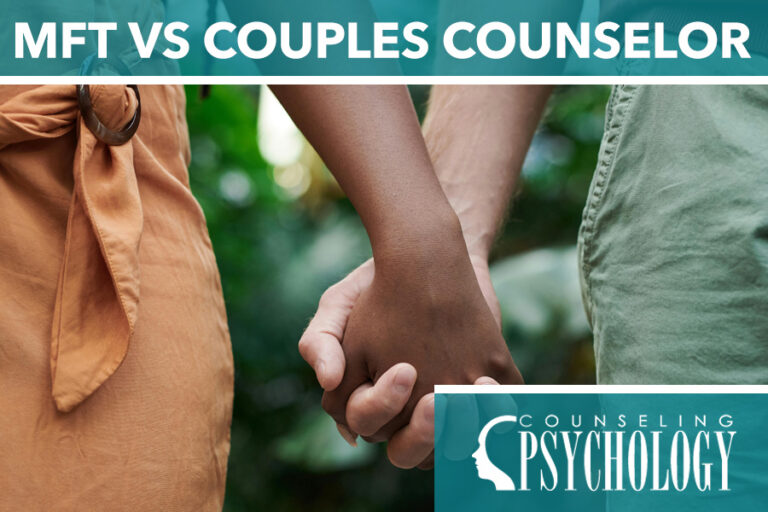MFT vs Couples Counselor: Understanding the Key Differences

When considering a career in relationship therapy, many aspiring mental health professionals wonder about the distinctions between becoming a Marriage and Family Therapist (MFT) and a couples counselor. While these terms are sometimes used interchangeably, there are important differences in education requirements, licensing processes, scope of practice, and career opportunities. Understanding these distinctions is crucial for making informed decisions about your educational path and professional goals in the field of relationship counseling.
Marriage and Family Therapist (MFT) Overview
A Marriage and Family Therapist is a licensed mental health professional who has completed specialized graduate-level education and clinical training specifically focused on marriage and family therapy. MFTs are trained to diagnose and treat mental health disorders within the context of marriage, couple, and family relationships. They must complete rigorous educational requirements, including a master’s degree from a COAMFTE-accredited program, extensive supervised clinical hours, and pass state licensing examinations.
MFTs use evidence-based therapeutic approaches such as Emotionally Focused Therapy (EFT), Gottman Method, and structural family therapy to address relationship dynamics, communication patterns, and systemic issues affecting families. Their training encompasses child development, family systems theory, psychopathology, and specialized interventions for various family configurations and cultural backgrounds.
Couples Counselor Overview
The term “couples counselor” is broader and can refer to various mental health professionals who provide relationship counseling services. Unlike MFT, which is a specific license designation, couples counselor is more of a practice area description. Licensed Professional Counselors (LPCs), Licensed Clinical Social Workers (LCSWs), psychologists, and even some MFTs may identify as couples counselors.
Couples counselors may have diverse educational backgrounds and training experiences. Some complete specialized certificate programs in couples therapy, while others gain expertise through continuing education workshops, post-graduate training institutes, or on-the-job experience. The educational requirements and scope of practice vary significantly depending on their underlying professional license.
Education and Program Options
MFT Education Requirements
MFT education follows a structured pathway with specific requirements:
- Master’s Degree: 48-60 credit hours from a COAMFTE-accredited Master’s in MFT program
- Core Coursework: Human development, family systems theory, research methods, psychopathology, assessment, and treatment planning
- Clinical Training: Minimum 500 hours of direct client contact during practicum and internship
- Supervision: Extensive supervised experience with qualified MFT supervisors
- Thesis or Capstone: Many programs require a research project or comprehensive examination
Popular MFT programs include those at Virginia Tech, Auburn University, Syracuse University, and Purdue University. Both on-campus and online options are available, though clinical training components require in-person participation.
Couples Counselor Education Pathways
Couples counselors may pursue various educational routes:
- Master’s in Clinical Mental Health Counseling: 48-60 credit hours with electives in couples therapy
- Master’s in Social Work (MSW): With specialization in clinical practice and couples therapy training
- Continuing Education: Workshops, seminars, and training institutes in specific couples therapy approaches
Licensing and Certification Requirements
MFT Licensing Process
- Complete master’s degree from COAMFTE-accredited program
- Accumulate 1,000-4,000 hours of supervised clinical experience (varies by state)
- Pass the Association of Marital and Family Therapy Regulatory Boards (AMFTRB) examination
- Meet state-specific requirements for ethics training and continuing education
- Maintain licensure through ongoing professional development
Couples Counselor Licensing
Since couples counselor isn’t a specific license, professionals must obtain their underlying license first:
- LPC: Licensed Professional Counselor requirements vary by state
- LCSW: Master’s in Social Work plus supervised clinical experience
- Additional Certifications: May pursue specialized couples therapy certifications from organizations like Gottman Institute or EFT Externship
Scope of Practice and Career Opportunities
| Aspect | MFT | Couples Counselor |
| Primary Focus | Marriage, couples, and family systems | Primarily couple relationships |
| Client Demographics | Individuals, couples, families, children | Primarily couples, some individuals |
| Treatment Approaches | Family systems, structural, strategic therapy | Varies based on underlying license |
| Work Settings | Private practice, family service agencies, hospitals | Private practice, counseling centers, EAPs |
| Diagnostic Authority | Can diagnose mental health disorders | Depends on underlying license |
| Insurance Reimbursement | Generally accepted by most insurance plans | Varies by underlying license type |
| Average Salary Range | $52,000-$87,000 annually | $45,000-$95,000+ (highly variable) |
Frequently Asked Questions
Q: Can couples counselors work with families?
A: This depends on their underlying license and training. Licensed Professional Counselors and Licensed Clinical Social Workers can typically work with families if they have appropriate training. However, MFTs receive the most comprehensive family systems training.
Q: Which path offers better career prospects?
A: Both paths offer strong career opportunities, but MFT provides more specialized training and typically better insurance reimbursement rates. The choice depends on whether you want to focus exclusively on relationships and families or maintain broader clinical flexibility.
Q: How long does it take to become licensed?
A: MFT licensing typically takes 3-5 years after completing your master’s degree, including supervised clinical hours. Couples counselors with other licenses may have similar timelines, but the process varies significantly by state and license type.
Q: Are online programs available for both paths?
A: Yes, many accredited online programs exist for both MFT and general counseling degrees. However, all programs require in-person clinical training components and practicum experiences.
Q: Which profession earns more money?
A: Earnings vary widely based on location, experience, and practice setting. MFTs often have slightly higher average salaries due to their specialized training, but successful couples counselors in private practice can earn comparable or higher incomes.
Q: Can I switch between these career paths?
A: Yes, with additional training and licensure requirements. MFTs can easily provide couples counseling, while couples counselors with other licenses may need additional training to work with families or obtain MFT licensure.
Which Role is Right for You
Choosing between becoming an MFT or couples counselor depends on your career goals, preferred client populations, and desired scope of practice. If you’re passionate about family systems and want comprehensive training in marriage and family therapy, pursuing MFT licensure provides the most direct path. If you prefer flexibility to work with various populations while specializing in couples work, obtaining an LPC or LCSW with couples therapy training might be more suitable.
Both career paths offer rewarding opportunities to help individuals and couples build stronger, healthier relationships. Consider your long-term professional goals, preferred work settings, and educational preferences when making this important decision about your mental health career.



